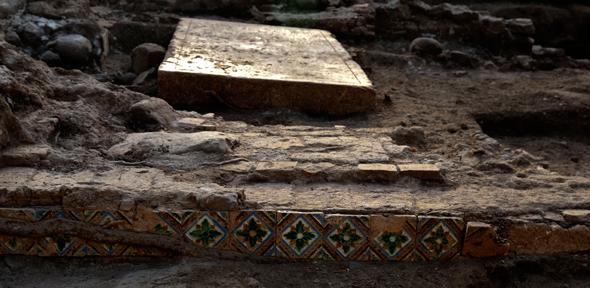Cidade Velha, former capital of the Cabo Verde Islands off the coast of West Africa, is home to a 500-year-old secret—a church, buried and left in ruins for hundreds of years, has been recently excavated and recognized as “the oldest formal European colonial building” discovered in sub-Saharan Africa to date (Cambridge). However, the mystery surrounding it is rooted in something much darker.
Colonized by Portuguese settlers, Cidade Velha was once a booming port city that owed its success to the slave trade, functioning for over 300 years as a holding point before slaves were sent to Portugal and the Americas (Phys.org). The previously mentioned Portuguese church, upon its excavation by a team from Cambridge University, was discovered alongside a massive cemetery of about 1,000 bodies. Interestingly enough, at least half of these bodies buried in Christian tradition were African, and presumed slaves (Discovery). These graves give rise to evidence of religious conversion of locals by the Portuguese settlers, and begin to raise important questions about Cabo Verde’s history that haven’t yet been addressed. The teeth and bodies of the dead have the potential to be examined in order to provide a deeper context of slaves’ diets and living conditions, as well as provide an objective truth about what life was really like in Cabo Verde in the 1500s as a result of colonization.
The excavation of this church in particular was an effort by Cambridge University that successfully began to rewrite the story of the Cabo Verde Islands and clarify a national history long-shrouded by the lingering remains of colonialism, slavery, and religious conversion. It is important to note that archaeologists from Cambridge collaborated with local workers on the excavation, making it a truly community effort. The digs were also made public and generated an immense amount of interest and support from locals.
The stories of Cabo Verde are now being claimed by the Cabo Verdeans, and rightfully so. Archaeological excavations such as this slowly but surely strip colonialism of its power over history’s narratives and let us remember history as it was, not as a dominant power structure wanted us to believe. This is a long-overdue reclamation of power, and it gives depth to local heritage, culture, and pride. “It’s a profound social and political story to which these new archaeological investigations are making an invaluable contribution,” says Marie Louis Stig Sørensen of Cambridge, and she’s absolutely correct—through archaeology, a local community can reclaim the ability to tell their own stories, and that is undeniably powerful.
Further Reading:
500-Year-Old Church Found in Slave Trade Settlement
Earliest church in the tropics unearthed in former heart of Atlantic slave trade – phys.org
Earliest church in the tropics unearthed in former heart of Atlantic slave trade – Cambridge
Uncovering the first European church in the tropics – YouTube


